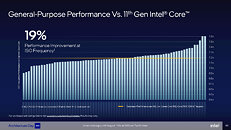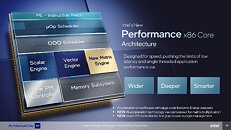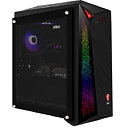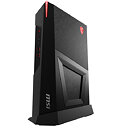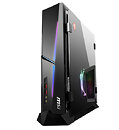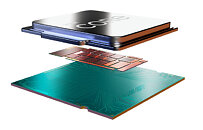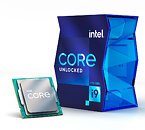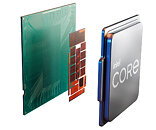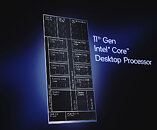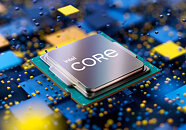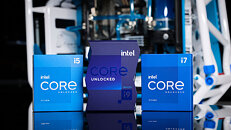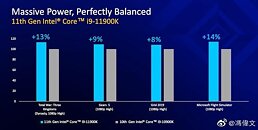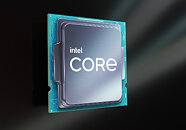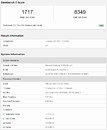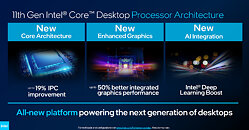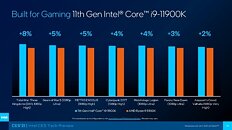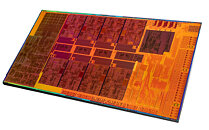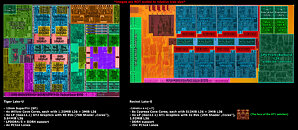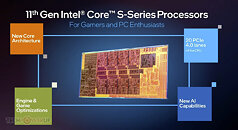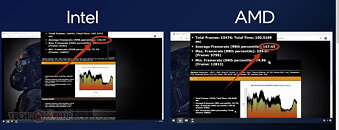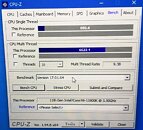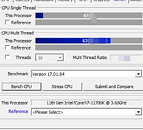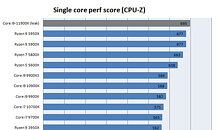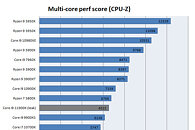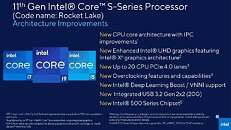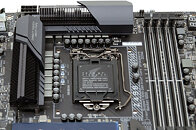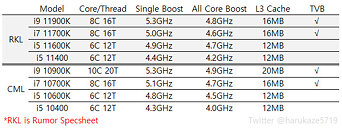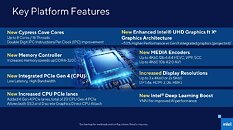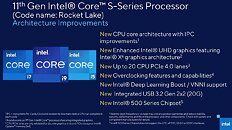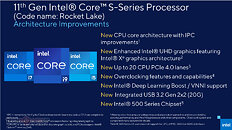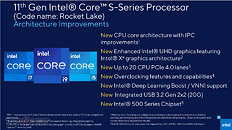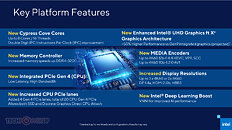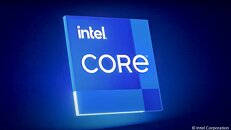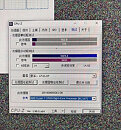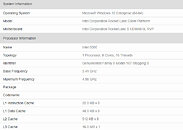
Latency Increase from Larger L2 Cache on Intel "Raptor Cove" P-core Well Contained: Report
According to an investigative report by "Chips and Cheese," the larger L2 caches in Intel's 13th Gen Core "Raptor Lake-S" doesn't come with a proportionate increase in cache latency, and Intel seems to have contained the latency increase well. "Raptor Lake-S" significantly increases L2 cache sizes over the previous generation. Each of its 8 "Raptor Cove" P-cores has 2 MB of dedicated L2 cache, compared to the 1.25 MB with the "Golden Cove" P-cores powering the current-gen "Alder Lake-S," which amounts to a 60 percent increase in size. The "Gracemont" E-core clusters (group of four E-cores), sees a doubling in the size of the L2 cache that's shared among the four cores in the cluster, from 2 MB in "Alder Lake," to 4 MB. The last-level L3 cache shared among all P-cores and E-core clusters, sees a less remarkable increase in size, from 30 MB to 36 MB.
Larger caches have a direct impact on performance, as more data is available close to the CPU cores, sparing them a lengthy fetch/store operation to the main memory (RAM). However, making caches larger doesn't just cost die-area, transistor-count, and power/heat, but also latency, even though L2 cache is an order of magnitude faster than the L3 cache, which in turn is significantly faster than DRAM. Chips and Cheese tracked and tabulated the L2 cache latencies of past Intel client microarchitectures, and found a generational increase in latencies with increasing L2 cache sizes, leading up to "Alder Lake." This increase has somehow tapered with "Raptor Lake."
Larger caches have a direct impact on performance, as more data is available close to the CPU cores, sparing them a lengthy fetch/store operation to the main memory (RAM). However, making caches larger doesn't just cost die-area, transistor-count, and power/heat, but also latency, even though L2 cache is an order of magnitude faster than the L3 cache, which in turn is significantly faster than DRAM. Chips and Cheese tracked and tabulated the L2 cache latencies of past Intel client microarchitectures, and found a generational increase in latencies with increasing L2 cache sizes, leading up to "Alder Lake." This increase has somehow tapered with "Raptor Lake."






